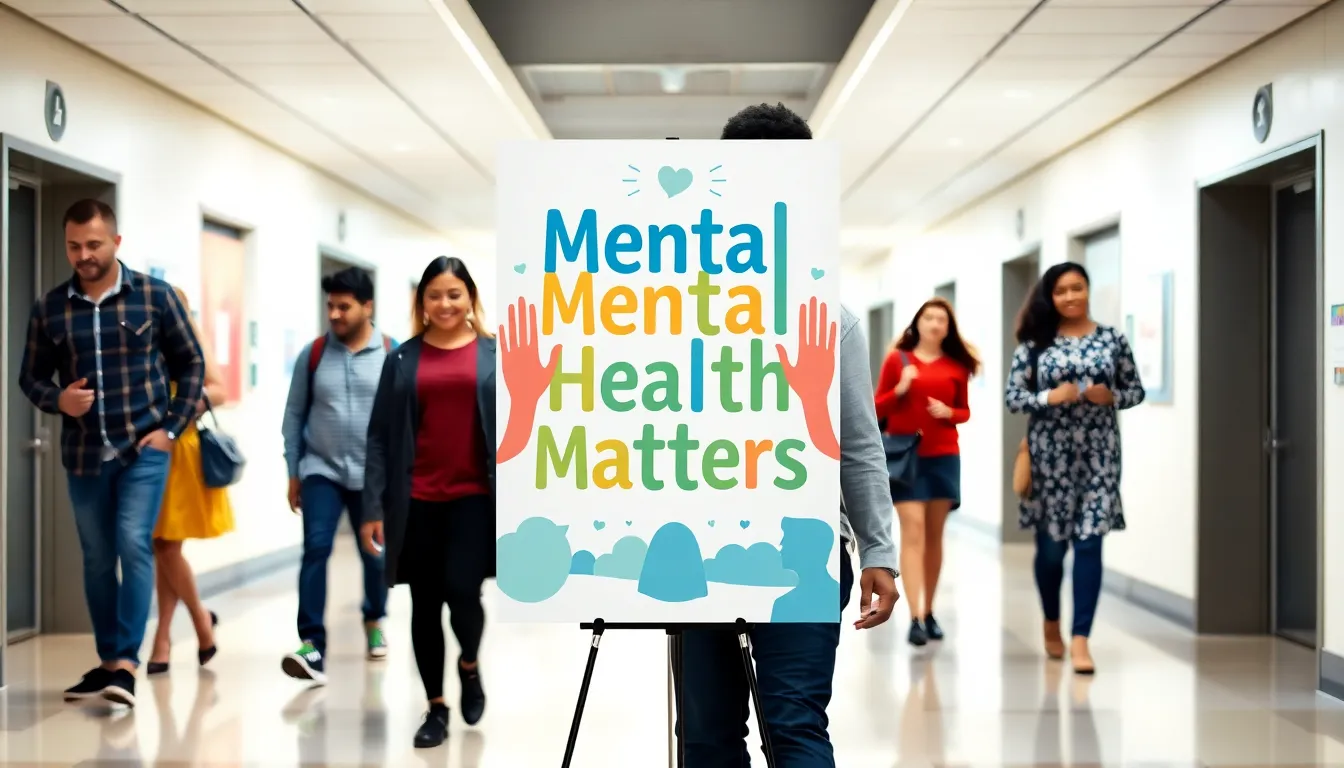When was the last time someone told you that your mental health matters? If you’re like most, you might struggle to remember. Yet, here’s a reality check: mental health isn’t just a trendy buzzword: it’s the foundation for a happy, fulfilling life. Imagine trying to bake a cake without flour, sure, you can toss in some ingredients, but good luck turning it into a masterpiece. In a way, ignoring mental health is similar. It’s time to bring laughter, joy, and a little dash of seriousness back into the realm of mental well-being. Let’s dig in.
Table of Contents
ToggleThe Importance Of Mental Health

Understanding Mental Health
Mental health goes beyond simply avoiding psychiatric disorders: it encompasses emotional, psychological, and social well-being. This trifecta influences how individuals think, feel, and act. It also plays a significant role in facing life’s challenges and in making decisions.
A healthy mind supports relationships, productivity, and overall resilience. According to the World Health Organization, mental health is defined as a state of well-being in which every individual realizes their potential, can cope with normal stresses, works productively, and contributes to their community. That’s quite the checklist.
Common Mental Health Conditions
What exactly do people face when it comes to mental health? Some common conditions that many battle include anxiety disorders, depression, obsessive-compulsive disorder, and bipolar disorder. Each condition has its distinctive characteristics and challenges. For instance, about 40 million adults experience anxiety, talk about a crowded club. Depression affects millions, manifesting in feelings of deep sadness and helplessness.
Understanding these conditions is essential, not just for personal growth but also for developing empathy and understanding towards others. With knowledge comes the ability to break the silence surrounding these issues.
The Stigma Surrounding Mental Health
Breaking Down Barriers
Even though advancing awareness, stigma plagues mental health like a persistent fly at a picnic. Many people feel ashamed to discuss their struggles, fearing judgment and misunderstanding. This barrier often leads to individuals suffering in silence when they truly could benefit from support.
To combat this, it’s vital to challenge the stereotypes and misconceptions associated with mental health. Education plays a crucial role in breaking down these barriers: advocating for mental health not only uplifts oneself but can also inspire change in others. If we can champion this cause, we can transform how society perceives those who face mental health challenges.
Promoting Open Conversations
Free-flowing dialogue about mental health can dismantle the wall of stigma. Open discussions offer a platform for individuals to express their feelings and share experiences. Imagine a world where discussing mental health is as easy as chatting about the weather: this is achievable when society embraces transparency.
Communicating openly about experiences with conditions like anxiety or depression can normalize these topics and allow those suffering to feel understood and less isolated.
Strategies For Maintaining Mental Well-Being
Self-Care Practices
Prioritizing mental well-being is as vital as making sure your car has enough oil, neglect it, and you might just break down. Engaging in self-care practices can take many forms. Simple habits like journaling, practicing mindfulness, or participating in hobbies can significantly impact mental health.
Setting aside time for activities that bring joy and relaxation can rejuvenate the spirit. Remember that self-care isn’t selfish: it’s necessary. Think of it as putting on your own oxygen mask before helping others.
Seeking Professional Help
Sometimes, self-care isn’t enough. That’s where professional help comes into play. Therapists, counselors, and psychologists are equipped with tools and strategies to aid individuals in navigating their mental health challenges. Professional help offers perspectives and techniques that might not have been considered, fostering personal growth.
Building A Support System
Connecting With Others
No one should face mental health struggles alone. Building a robust support system is essential for maintaining mental well-being. Friends, family, or even pet companions can offer invaluable understanding and encouragement. Also, connecting with fellow individuals who share similar experiences can foster feelings of belonging and acceptance.
Engagement in activities like support groups or community-centered events creates opportunities to forge these connections. It’s amazing how sharing one’s story can be healing, not only for the storyteller but for listeners as well.
Community Resources
Various resources exist to bolster mental health at the community level. Non-profit organizations and local programs often provide counseling services, workshops, and peer support groups. Making use of these resources can be a game-changer for those in need.
It’s essential for communities to promote and invest in mental health initiatives, ensuring that support doesn’t just exist but thrives.






